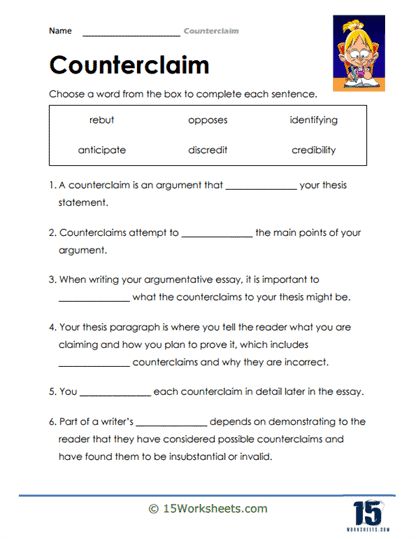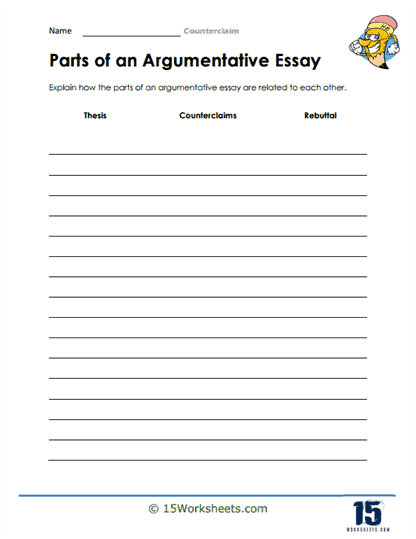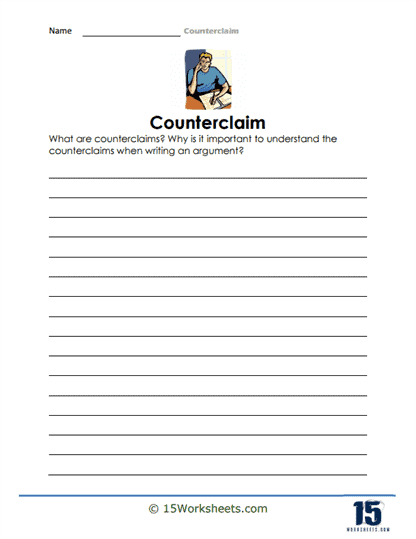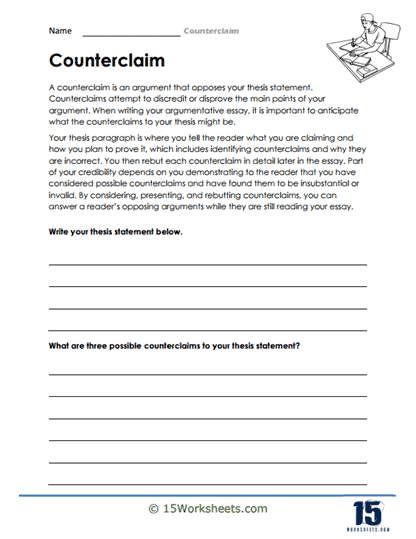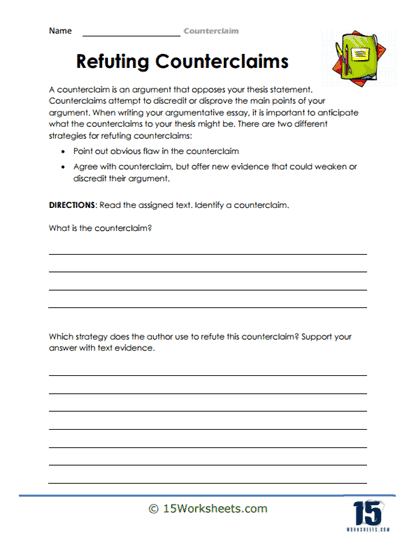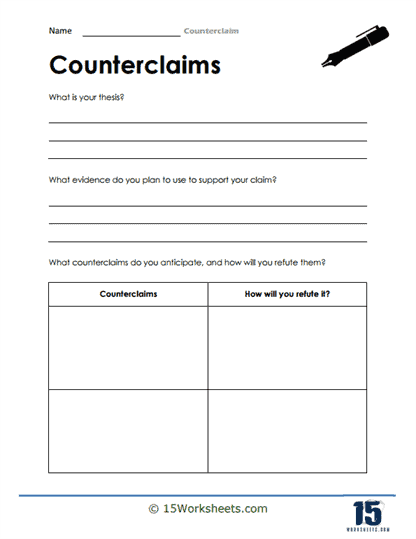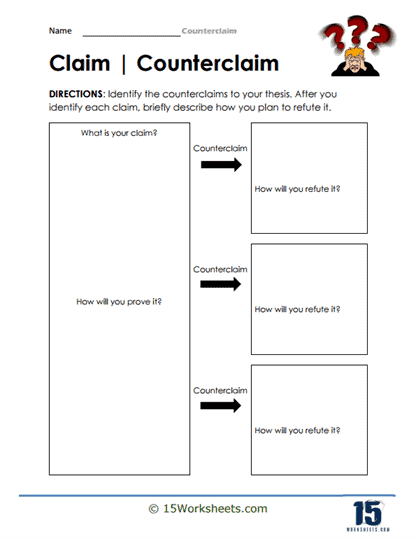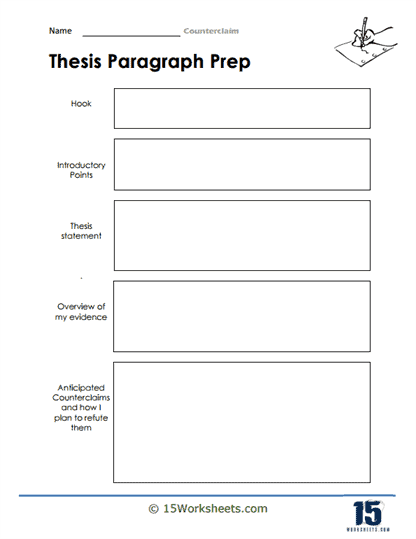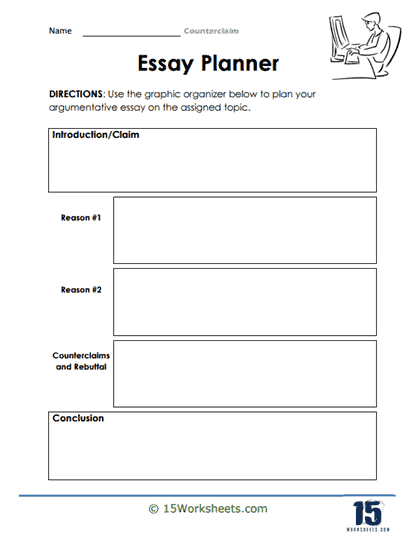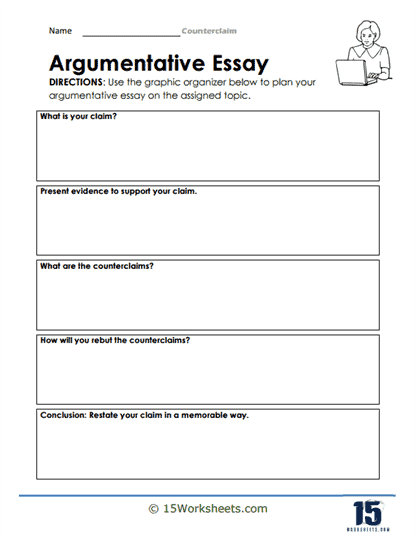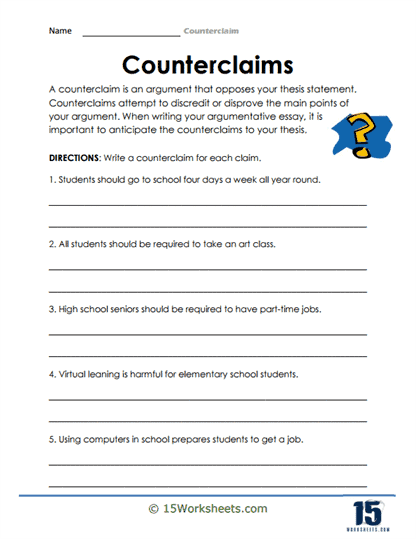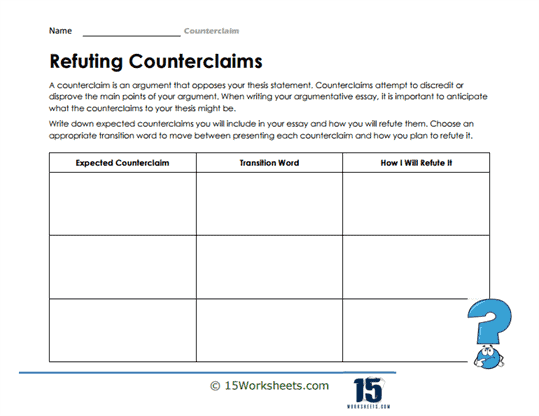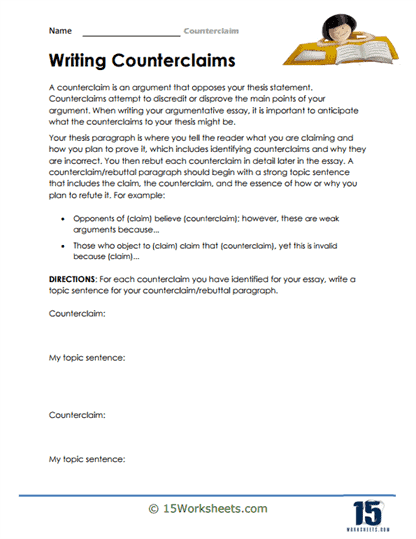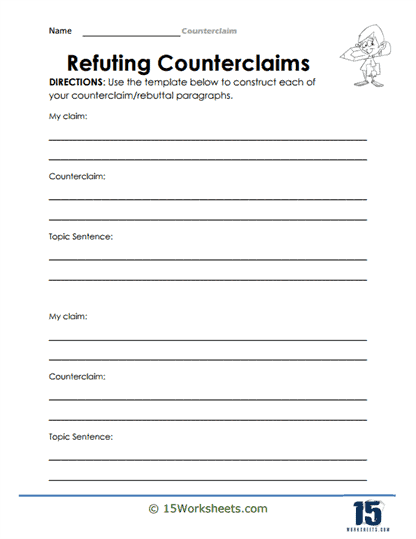Counterclaims Worksheets
All About These 15 Worksheets
Students explore the art of countering perspectives and developing well-rounded arguments with this series of 15 worksheets designed to help them understand and effectively incorporate counterclaims in their writing. Each worksheet provides students with guided exercises and practical strategies to enhance their understanding and application of counterclaims.
This series caters to students across different grade levels, offering a range of worksheets that cover various aspects of counterclaims. Through these worksheets, students will:
- Develop an awareness of how counterclaims strengthen their arguments and engage with opposing perspectives;
- Analyze and extract counterclaims from provided texts or scenarios;
- Assess the strength of counterclaims by considering the evidence, logical reasoning, and potential biases;
- Construct persuasive responses to counterclaims, supporting their own claims with compelling evidence and reasoning;
- Create well-rounded arguments that consider multiple perspectives, enhancing the depth and complexity of their writing;
- And develop persuasive rebuttals that address counterarguments and solidify their own claims.
Overall, this series of worksheets serves as a valuable resource for teachers seeking to enhance their students’ argumentative writing skills. By engaging with these worksheets, students develop the abilities to recognize and analyze counterclaims, construct effective rebuttals, and present well-rounded arguments that consider multiple perspectives.
How to Propose a Counterclaim
In an essay, counterclaims are offered to the thesis declaration so the reader can see both sides of the argument. As the final sentence of your introduction, your thesis statement should tell the reader precisely what you plan to argue and how you plan to debate it.
The counterclaim demonstrates to the reader that you have evaluated the competing ideas and determined that they are deficient in some way.
Difference Between a Claim and a Counterclaim
What is the difference between a claim and a counterclaim? Each party’s assertions constitute the primary distinction between a claim and a counterclaim. A statement that illustrates the position of argument or declares the existence of a fact or truth is known as a claim. On the other hand, a counterclaim is an argument that contradicts or disproves a particular claim by providing rebuttal evidence to that claim. A claim presents the author’s reasoning, while a counterclaim refutes or undermines it.
In the first stage, you make a counterclaim or counterargument to your original claim or argument to refute it. You circle back to your initial claim or argument in the second stage to reaffirm it. When writing an effective counterclaim, you should always assume that some of your readers will be dubious, and it is your job to convince them that you are right.
For instance, if you wish to offer a counterclaim showing that there was a problem with how you conducted your claims, you can do so by emphasizing the negative aspects of the presentation flaws, such as an unreasonable assumption and specific evidence being minimized or omitted, etc. Then, offer an alternate recommendation or choice that makes more sense to the target audience.
- Show that the reader’s points of view are deserving of consideration but that your viewpoint is the one that makes the most sense.
- Recognize the potential counterarguments that the audience may raise.
- Make an argument that conforms to the reader’s reasoning by presenting them with credible evidence.
- It would help if you avoided including a rebuttal to do so.
- Make certain that the counterargument can stand on its own as a genuine point of discussion and can be supported by proof.
Length of a Counterclaim
When the counterargument comes after the paragraph that introduces the topic, or when it comes at the end of the body of the argument before the conclusion, it can be if its paragraph. If, on the other hand, the counterargument is presented within the same paragraph as the main argument, its length need only be a few phrases (2-3). However, the time limit for filing a counterclaim depends on the initial claim.
Should you include counterclaims for every essay? There are numerous varieties of essays. An example of this would be an expository essay, which merely investigates a subject and does not require a counterclaim. In contrast to other articles, narrative essays focus on the author’s personal experiences and do not require a counterclaim. Argumentative essays, which demand the writer to demonstrate that they have a comprehensive understanding of the topic and have studied all sides, provide a place for counterclaims that play a significant role in the essay.

